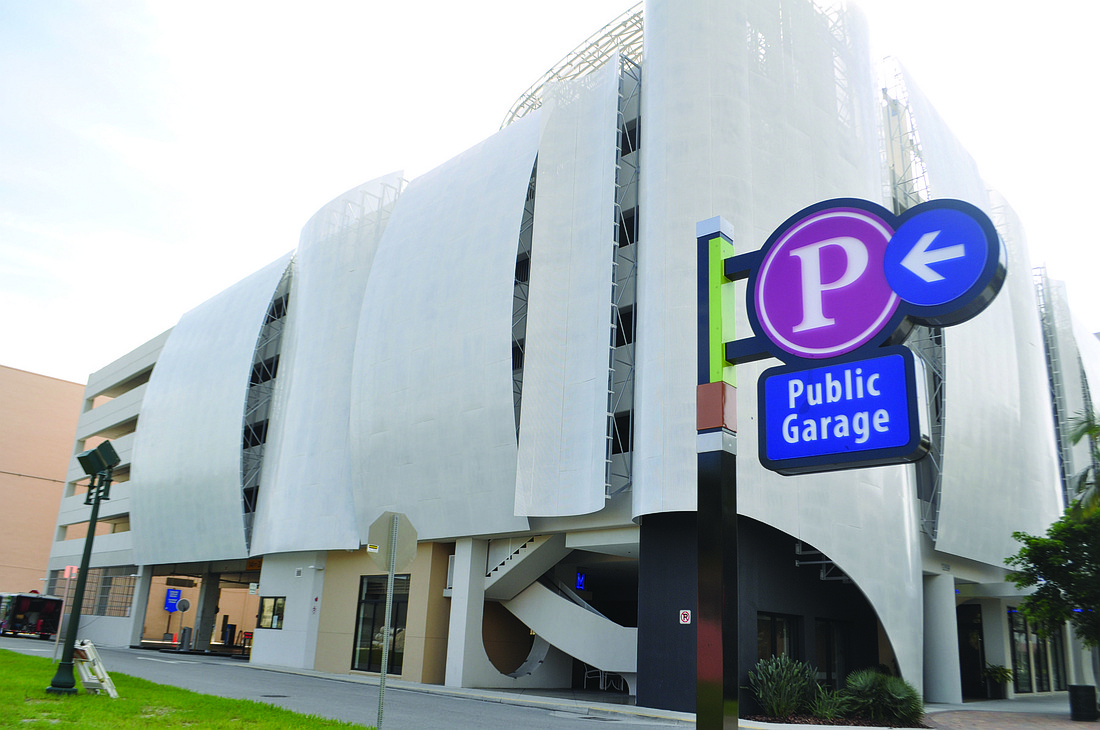- April 25, 2024
-
-
Loading

Loading

On Tuesday, the Downtown Improvement District heard a presentation from city Parking Manager Mark Lyons, who outlined a series of guiding principles that he said would dictate how the city oversees its parking supply.
The DID board praised Lyons’ work, agreeing that it would serve as a solid foundation for a comprehensive parking management strategy for the city. That’s why the board members were particularly upset that, in their eyes, the city has been ignoring those principles.
“We’re not reinventing the wheel — everybody knows what works and what doesn’t work,” DID board member Eileen Hampshire said. “What doesn’t work is the chaos we have in parking now.”
The DID board criticized two recent changes in the city’s parking policies. One institutes a four-hour time limit on parking in the downtown garages, and the other allows the city to charge $5 in those garages during special event weekends.
The board said this felt backwards. Lyons had previously suggested on-street spaces were the ones the city should be charging for, that people would either pay a premium for the convenience or seek refuge in a more distant parking garage, free of charge. Now, the only people who paid for parking in the city were garage users?
“The simple basic concept that I’ve seen many times is paid on the street and free in garage,” DID board member Mark Kauffman said. “Short term in the street, long term in the garage. It seems so obvious we should start that way.”
In a 4-0 vote, the DID recommended that the city rapidly move to adopt a parking policy that charged for on-street parking and maintained a garage parking system free of charge and time restrictions.
It’s been 21 months since the city’s Parking Advisory Committee last met. The group, comprised of representatives from business districts throughout the city, was tasked with helping to develop a comprehensive parking management strategy. It was a response to the poor reception the city’s previous attempt to institute on-street paid parking.
Still, Lyons didn’t shy away from what could have been an unpopular stance: Paid parking was necessary in a city of Sarasota’s size. He admitted some mistakes with the prior approach — the public wasn’t well educated, the program wasn’t strategically implemented, the technology was lacking.
But if paid parking was done right, he said, it wouldn’t just help eliminate a long-standing deficit in the city’s parking fund — it would actually be an asset for business in downtown Sarasota.
“Given time, a paid-parking system will prove its worth,” Lyons said in a 2014 interview with the Sarasota Observer.
Since then, the City Commission has failed to hold a substantive discussion of the Parking Advisory Committee’s final report. City officials have cited packed agendas and turnover on the commission as contributing factors to the lengthy delay, but Deputy City Manager Marlon Brown took responsibility for the city’s failure to consider a comprehensive parking strategy to date.
“We haven’t taken the report of the Parking Advisory Committee to the commission,” Brown said. “Shame on us as staff. We need to do a better job of getting that information to them.”
Brown said staff is working to have that topic scheduled for a February or March commission meeting. The DID board encouraged the city to have that discussion soon, emphasizing the urgency of developing a comprehensive approach for managing the city’s parking supply.
“My angst is not paying to park; I’m not looking for free parking,” DID board member Steve Seidensticker said. “It’s a cohesive, comprehensive plan that the city leadership has to adopt.”